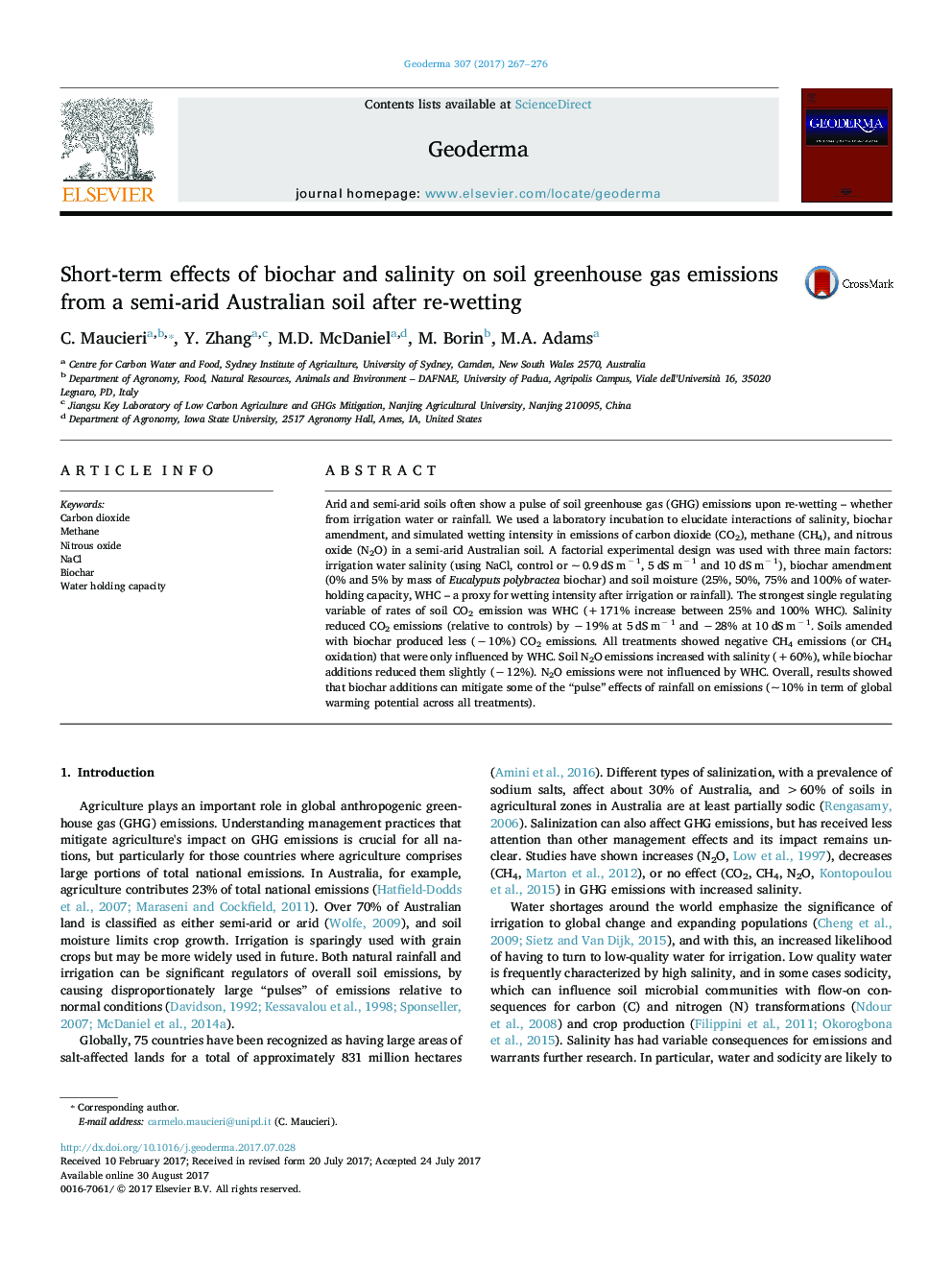| کد مقاله | کد نشریه | سال انتشار | مقاله انگلیسی | نسخه تمام متن |
|---|---|---|---|---|
| 5770250 | 1629410 | 2017 | 10 صفحه PDF | دانلود رایگان |
- Soils amended with biochar and water salinity reduced soil CO2 emissions by â 10% and â 28%, respectively.
- Soil moisture significantly influenced soil CH4 oxidation with optimum between 50 and 75% WHC.
- Increasing irrigation water salinity strongly increased soil N2O emissions by +Â 27%.
- Biochar additions reduced soil N2O emissions by â 12%.
- Biochar addition can mitigate some (â 10%) of the “pulse” effects of rainfall on soil greenhouse gases emissions.
Arid and semi-arid soils often show a pulse of soil greenhouse gas (GHG) emissions upon re-wetting - whether from irrigation water or rainfall. We used a laboratory incubation to elucidate interactions of salinity, biochar amendment, and simulated wetting intensity in emissions of carbon dioxide (CO2), methane (CH4), and nitrous oxide (N2O) in a semi-arid Australian soil. A factorial experimental design was used with three main factors: irrigation water salinity (using NaCl, control or ~ 0.9 dS mâ 1, 5 dS mâ 1 and 10 dS mâ 1), biochar amendment (0% and 5% by mass of Eucalyputs polybractea biochar) and soil moisture (25%, 50%, 75% and 100% of water-holding capacity, WHC - a proxy for wetting intensity after irrigation or rainfall). The strongest single regulating variable of rates of soil CO2 emission was WHC (+ 171% increase between 25% and 100% WHC). Salinity reduced CO2 emissions (relative to controls) by â 19% at 5 dS mâ 1 and â 28% at 10 dS mâ 1. Soils amended with biochar produced less (â 10%) CO2 emissions. All treatments showed negative CH4 emissions (or CH4 oxidation) that were only influenced by WHC. Soil N2O emissions increased with salinity (+ 60%), while biochar additions reduced them slightly (â 12%). N2O emissions were not influenced by WHC. Overall, results showed that biochar additions can mitigate some of the “pulse” effects of rainfall on emissions (~ 10% in term of global warming potential across all treatments).
Journal: Geoderma - Volume 307, 1 December 2017, Pages 267-276
